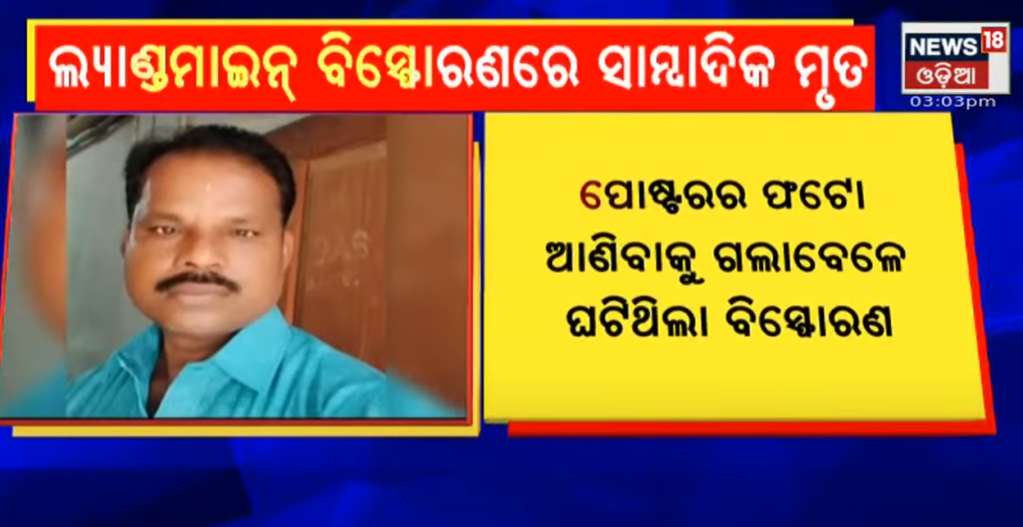New Delhi, February 8, 2022 – Authorities in the Indian state of Odisha must thoroughly investigate the death of journalist Rohit Biswal, hold those responsible to account, and ensure that members of the press can cover security issues safely, the Committee to Protect Journalists said Tuesday.
On Saturday, February 5, Biswal was reporting from Odisha’s Kalahandi district when an improvised explosive device detonated, killing him at the scene, according to multiple news reports.
Biswal, a reporter with the local Odia-language newspaper Dharitri, was photographing posters put up by Maoist rebels asking residents to boycott upcoming local elections when he was killed, according to those sources.
Kalahandi Police Superintendent Vivek M. Saravana was quoted in those reports saying that authorities believed the bomb was planted by Maoist rebels to target police officers, but Biswal had arrived at that location before the police.
“The killing of journalist Rohit Biswal in India’s Odisha state highlights the continuing dangers that journalists face when covering Maoist activities,” said Steven Butler, CPJ’s Asia program coordinator, in Washington, D.C. “Authorities must ensure those responsible for Biswal’s death are held to account, and that members of the press can cover such issues without fearing for their lives.”
Saravana was quoted as saying that Maoist groups “sometimes” rig explosive devices near their posters, and that authorities do not take such posters down until they have been inspected by bomb squads.
CPJ emailed Saravana for comment, but did not receive any response. CPJ was unable to find contact information for the KKBN Division of CPI(Maoist), the group identified in those news reports as suspected to be behind the attack. Dharitri editor Tathagata Satpathy did not immediately respond to a text message from CPJ seeking comment.
Previously, in 2018, journalist Achyutananda Sahu was killed in Chhattisgarh during a firefight between police and a Maoist militant group.
